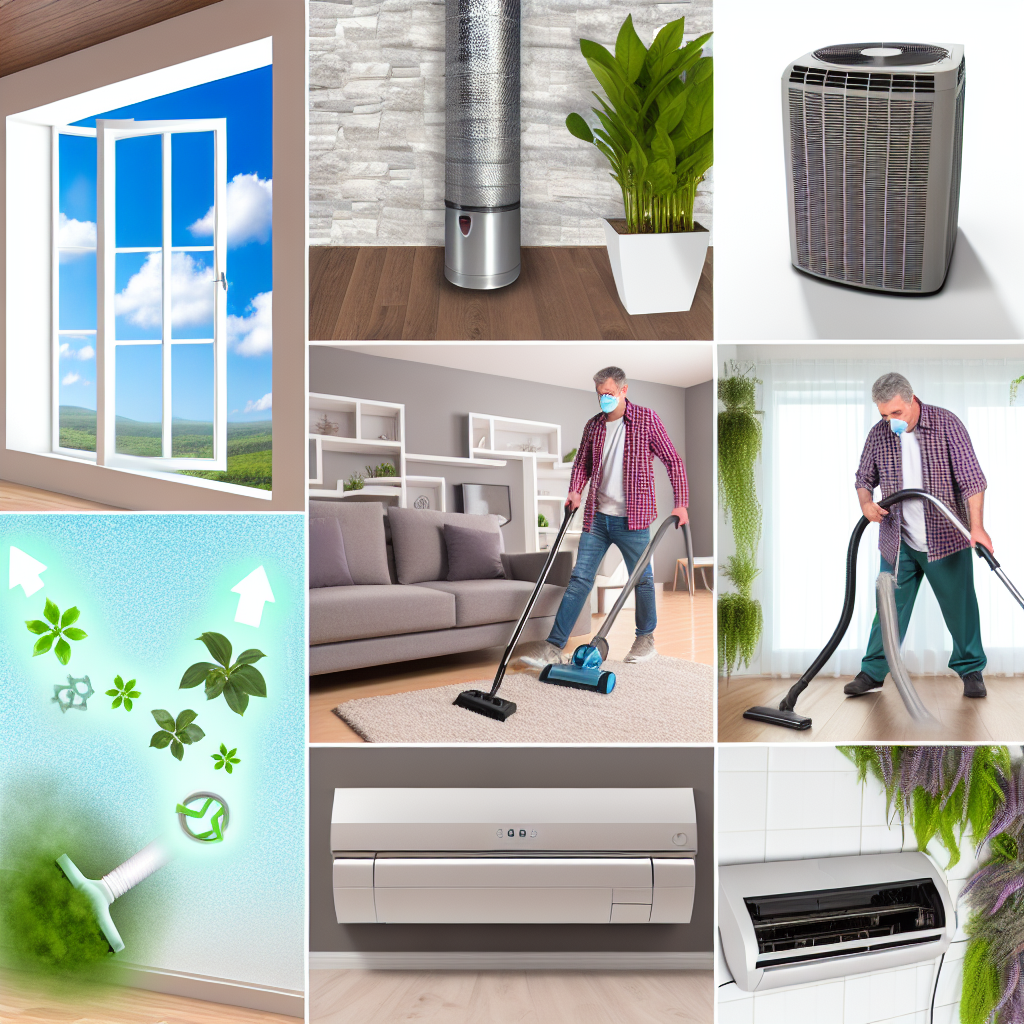Published: Jul 01, 2025

Indoor air quality is crucial for your health and well-being. Poor indoor air quality can lead to various health issues such as respiratory problems, allergies, and even long-term health risks. To ensure a healthier living environment for you and your family, follow these 10 tips to improve indoor air quality in your home.
Regular cleaning helps reduce dust, pet dander, and other allergens that can contribute to poor air quality. Vacuum and dust frequently to maintain a clean living space.
Proper ventilation is key to circulating fresh air and reducing indoor pollutants. Open windows when weather permits, use exhaust fans in kitchens and bathrooms, and consider investing in an air purifier.
Maintain indoor humidity levels between 30-50% to prevent mold growth and dust mites. Use a dehumidifier in damp areas and fix any leaks promptly to avoid moisture build-up.
Limiting or completely avoiding smoking indoors can significantly improve indoor air quality. Secondhand smoke contains harmful chemicals that can linger in the air for long periods.
Volatile organic compounds (VOCs) are chemicals found in many household products that can off-gas and pollute indoor air. Opt for low VOC or VOC-free products such as paints, cleaning supplies, and furnishings.
Regular maintenance of your heating, ventilation, and air conditioning (HVAC) system is essential for good indoor air quality. Change filters as recommended, schedule professional inspections, and keep ductwork clean.
Houseplants can act as natural air purifiers, absorbing harmful pollutants and releasing oxygen. Consider adding plants like aloe vera, spider plants, or peace lilies to enhance air quality in your home.
Encourage family members and guests to remove shoes before entering your home to prevent tracking in outdoor pollutants like dirt, pesticides, and allergens.
Radon is a radioactive gas that can seep into homes through the ground and pose serious health risks. Test your home for radon to ensure a safe living environment for your family.
If you have pets, bathe them regularly and groom them outdoors to reduce shedding and dander in your home. Consider establishing pet-free zones to minimize allergen exposure.
By following these 10 tips, you can significantly enhance the indoor air quality of your home, creating a healthier and more comfortable living environment for you and your loved ones.

Our expert technicians are ready to assist you 24/7!
Contact Us Today!Read our latest articles for helpful information about heating, cooling, and air quality.
Maintaining good indoor air quality is crucial for reducing allergy symptoms during allergy season. Regular cleaning, p...
Read MoreRegular air duct cleaning offers a multitude of benefits, including improved air quality, enhanced energy efficiency, p...
Read MoreRecognizing signs such as age, rising energy bills, frequent repairs, uneven heating/cooling, and strange noises/odors...
Read MoreRegular HVAC maintenance is crucial for keeping your system running smoothly, avoiding costly repairs, and improving ene...
Read More